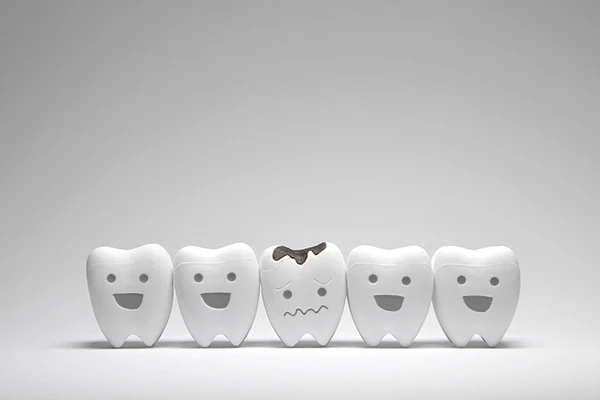What Options You Have for a Broken Wisdom Tooth
Posted on 12/16/2024 by Surprise Oral & Implant Surgery |
 Wisdom teeth, the third and last set of molars, usually erupt between the ages of 17 and 25. Wisdom teeth, the third and last set of molars, usually erupt between the ages of 17 and 25.
While some people experience no issues with their wisdom teeth, others encounter problems such as impaction, crowding, or breakage.
A broken wisdom tooth can cause pain, infection, and difficulty chewing.
If you're facing a broken wisdom tooth, it's important to understand your options and make an informed decision about the best course of treatment.
Understanding the Problem
A broken wisdom tooth can occur due to various reasons, including trauma, tooth decay, or underlying dental problems.
The severity of the break can range from a small chip to a complete fracture. Depending on the extent of the damage and the location of the tooth, different treatment options might be available.
Treatment Options
1. Restoration Dentistry:
If the break is minor and the tooth is otherwise healthy, your dentist might recommend restorative procedures like fillings or crowns. Fillings can repair small chips or cracks, while crowns can cover the entire tooth, restoring its strength and function. This option can be suitable for patients with healthy wisdom teeth and minimal breakage.
2. Extraction:
If the break is severe, the tooth is badly decayed, or there is not enough healthy tooth structure remaining for restoration, extraction might be the best course of action. Wisdom tooth extraction is a common dental procedure typically performed by an oral surgeon. While the thought of extraction might seem daunting, it is often the most effective solution to prevent further complications and maintain overall oral health.
3. Monitoring:
In some cases, if the break is minor and causing no pain or discomfort, your dentist might recommend monitoring the tooth. Regular checkups and X-rays will help monitor the condition of the tooth and determine the need for future intervention.
Making the Right Decision
Choosing the right treatment option for your broken wisdom tooth depends on various factors, including the severity of the break, the overall health of the tooth, your individual dental history, and your personal preferences.
It's crucial to consult with a qualified oral surgeon or dentist to discuss your options and determine the most appropriate course of treatment for your specific.
Remember, good oral care habits like regular brushing, flossing, and dental checkups can help prevent future dental problems, including wisdom tooth complications. If you experience pain or discomfort in your wisdom teeth, don't hesitate to seek professional advice. Addressing the problem early can help avoid more complex and costly interventions in the future. |
|
